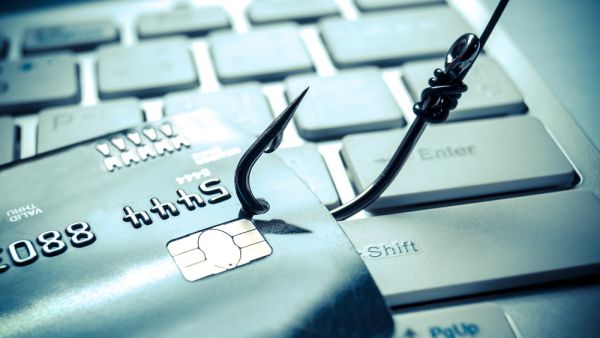Residents in the UAE have easy access to credit, debit and loyalty cards - from obtaining one to taking care of various transactions online - the possibilities are endless. While banks and financial institutions have state-of-the-art security system in place, what people tend to forget are the basic responsibilities of the cardholder. These are simple precautions that safeguard your identity and account.
Here's a fresh list of tips to enjoy the best your card has to offer, while protecting your account:
Keep your paper records safe
. Despite our digital era, paperwork lives on in many forms, especially when it comes to applying for a card and receiving receipts or bank statements. These documents include personal details that can be used as for fraud practices. Always remember to lock your financial reports and records in a fire/water-proof drawer or cabinet at home.
. In the office, don't forget to safely store your wallet or purse containing your bank cards in a locked place whenever you need to leave it behind.
. The UAE is a perfectly safe country for visitors and residents, but carrying large amounts of cash or personal documents requires alertness no matter where you are. As common sense, only take what is required and leave the rest at home. Avoid leaving important documents scattered in the car, and always keep photocopies of your Emirates ID and passport to take with you instead of the original, unless necessary.
. It's your right to ask questions when in doubt, so do not hesitate to ask any organisation for reasons why you should provide personal details, and how they will protect it once you submit them.
. Remember to dispose important documents properly. Cut or shred items such as old and unused credit cards, bank receipts and statements, forms, cheques, etc. when no longer needed.
. If you're flying out of the country, entrust your mailbox only to trustworthy relatives and friends. You wouldn't want someone rummaging through your bank details. If there's no one to turn to, inform the post office or your workplace reception of your vacation so they can hold onto your mail for you.
. Always be the one to sign off and receive newly issued credit, debit and loyalty cards, and cheques.
. Don't let others take photos of your personal ID cards, such as the Emirates ID, or passport. This vital information can be easily used to retrieve bank information.
Protect yourself online
. Websites and smartphone apps have added convenience to everyday life, but remember to log out once you're done using it your account. For additional safety, clear your browser cache.
. Make sure the website you are logging onto has a security certificate in place. Keep an eye out for the browser address and make sure it starts with https:// and has a lock icon on the status bar. This ensures your entered information will be safe when transmitted.
. There have been many reports in the UAE about fake calls, sms and e-mails from impersonators posing as official financial institutions. Remember that no bank will ever ask its client for details such as account number, PIN or the three-digit CVV code at the back of your credit/debit card.
. Similarly, there are scams where callers claim you've won a significant amount of cash through a lottery and ask for your bank details to deposit the money. Do not reveal any information, and hang up immediately. Avoid responding to such e-mails as well.
. If you regularly access bank websites at your workplace or leave your phone on your desk, add a password-protected screen on your devices to avoid negligence. If possible, make a strong password with a mix of letters and numbers. Avoid using names of favourite things or birth dates. Never let your device save passwords automatically.
. Social media has brought people from across the world closer than ever, but there are a number of reasons not to trust someone you're friends with on a website. Never share details or photos online that reveal your personal bank information.
. Avoid any financial transactions over public Wi-Fi. If you really need to get work done, check if the network you are using is secure and the website is encrypted to protect information.
. Make sure your anti-virus and anti-spyware software on your laptop is up to date, and ensure your firewall is up and running. Always carefully read and review the alert messages that pop up on your screens before dismissing them.
. Our online inboxes are prone to spam messages, especially phishing e-mail. Don't click on links, open or download any attachments from senders you are not familiar with. Opening these files may expose your system to viruses or spyware that capture your passwords and other typed information.
By Farhana Chowdhury








